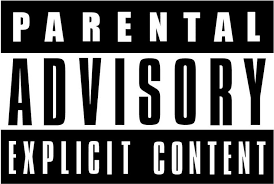Warning – this blog will intentionally question the concept of parent. Some language will be unfamiliar and offense could be taken if you subscribe to narrowly prescribed notions of family. Viewing may lead to questions that may not have simple answers.
There is nothing more grating than the question ‘do you have children?’ I fall into some sort of suspended animation or alternative dimension when I hear it, where all possibilities are present for the correct answer but I have to pick the one that will satisfy the person asking because everyone has a different formula for the ‘right’ ratio of parents to children ranging from 0 to…. probably not an extremely high number perhaps the teens? I’m never sure how they will respond but EVERYONE has an opinion about it and they usually feel entitled to tell me, even if they know nothing else about who I am. This is because the universal experience of life is to have a family – however it is put together, what we ‘know’ about it from experience has more than likely influenced a default sense of ‘what works’.
Once you get to a particular age the question becomes more earnest or takes on different meaning depending on the context and probably gender and other intersections of time and space. I am able to take up the social position recognised as parent although I’m not sure that I’d say I fit the expected ‘mum’ or ‘dad’ role – that in itself will invite some consternation from people determined to make the one ‘giving birth’ mum and the complementary ‘Donator of DNA’ Dad. Parenting has become a bit like career planning, with plenty of guidelines, willing coaches, experts, advice, and shoulders to cry on if it doesn’t go well. The other alternative is parenting is like reality TV, where we get edited versions and scripts that appear natural but really aren’t. Either way it seems to be a little weird.
There are many people parenting children who are not recognised for this. I meet many ‘mumsters’ in my job, young women in their teens with many siblings who take on a significant parent role but have to navigate the delicate power dynamics with parents and maintaining a sense of themselves. Rather than talking about ‘half’ and ‘step’ I think it’s important to name the quality of the role and the unique positions they afford people. Kiwis love to use the words Cuz (cousin) and Bro (anyone of either gender for whom you feel affection) so it shouldn’t be so hard to spread that openness to parenting.
Today marked 8 years of sharing life with this amazing and beautiful young being and what I appreciate about that is the young person who allows me to take up this role has an opportunity to see that regardless of the body parts I may or may not have I am genuinely interested in their life and how I can support them to feel confident, open, and curious about the world. If I can do that well and keep a sense of perspective on my role and how important I am/not while allowing for mistakes, falls, upsets and apologies (me included), then I might consider I’m doing an ok job.
Blood is thicker than water, it dries up, cracks, gets diseases and stains if you get it on your clothes. Water is part of everything and can exist in many forms – I’ll take water over blood any time.


